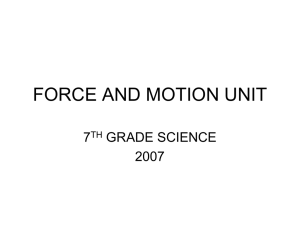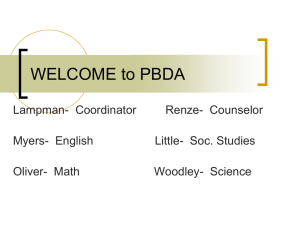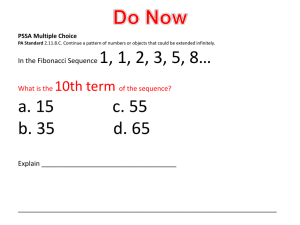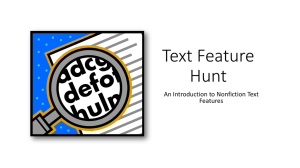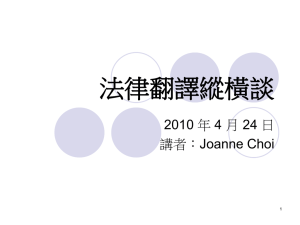The Application of Moodle`s Glossary Activity in Building Learners
advertisement
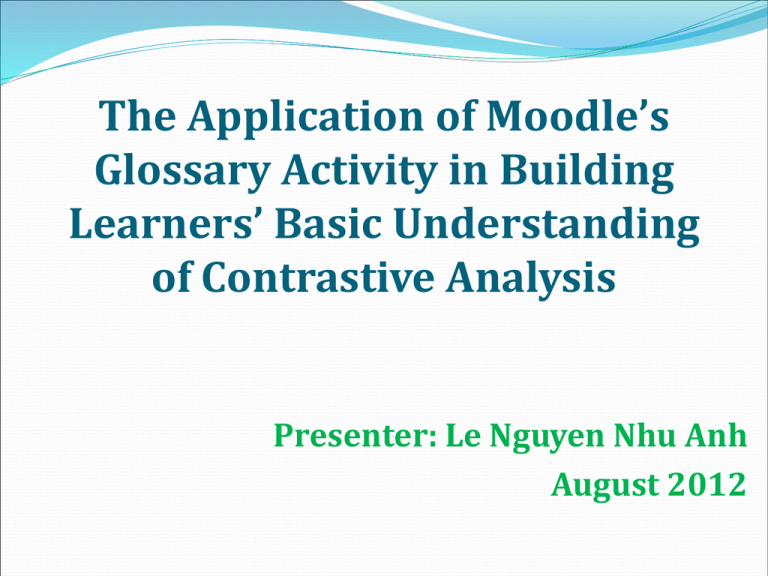
The Application of Moodle’s Glossary Activity in Building Learners’ Basic Understanding of Contrastive Analysis Presenter: Le Nguyen Nhu Anh August 2012 CONTENTS E-learning in Vietnam Introduction to MOODLE Moodle-based Contrastive Analysis Class The Glossary Activity The Application of Glossary Activity Reference E-learning in Vietnam E-Learning types: – CBT (Computer-Based Training) – Distance Learning – Online Learning/Training – TBT (Technology Based Training) – WBT (Web-Based Training) - In December 2004, MOET launched e-Learning portal in VN at http://el.edu.net.vn - In March 2005, Vietnamese Moodle community was set up http://moodle.org/course/vie w.php?id=45 - All educational institutions connected to internet - Web sites used for learning and learning management purposes - OCW (Open Courseware) - Software for e-learning An overview of Moodle Open Source Course Management System (CMS) / Learning Management System (LMS) / Virtual Learning Environment (VLE). Able to scale to very large deployments and hundreds of thousands of students Platform to conduct fully online courses / blended learning Activity modules (such as forums, databases and wikis) to build richly collaborative communities of learning Deliver content to students and assess learning Moodle-based Contrastive Analysis Class Introduced by Dr. Nguyen Ngoc Vu, Dean of English Department, HCMC UE English-Vietnamese Comparative Linguistics Blended learning Moodle-based class Topic-based, 15 weeks Various activities: Glossary, Lesson, Quiz, Forum… The Glossary Activity Adding an entry GLOSSARY AS DICTIONARY GLOSSARY AS RESOURCE COLLECTION AUTO-LINKING PRINT WITH A CLICK Learner’s Contributions - Ratings & Comments Key word search Random Glossary Entry Block Categorizable & Searchable The Application of Glossary Activity 1. CREDIT FOR WORD USE Glossary entries contain: Vocabulary Auto-linking: On Terms highlighted in the course Credit earned for correct term usage 2. Person OF THE WEEK Glossary entries contain: Bios of people related to field of study / key experts Random glossary entry block: Random Every 7 days 3. RESOURCE COLLECTION Glossary entries contain: Websites Categories for resource types Ratings: ON to rate websites/resources Allow learner contributions 4. Quote OF THE DAY Glossary entries contain: Quotes Categories for different quotes Random glossary entry block: oRandom Every day Ratings: ON to rate quotes Comments: To allow tips, variations, corrections Allow learner contributions 5. COMMON ERRORS Glossary entries contain: Common errors Ratings: ON to rate common errors Comments: ON to allow additions or clarification Random glossary entry block: Optional 6. TEST REVIEW Glossary entries contain: Test content review Categories related to different objectives Ratings: ON to rate quality of content Comments: ON to allow additions or clarification Variations: Project alternative to writing reports Content generation for training materials 7. DEBATE TOPICS Glossary entries contain: Sample debate topics Categories related to different types of topics Random glossary entry block: Random Variations: Sample exam questions Reference - http://elearning.khoaanh.net - http://moodle.org/forums/ - http://topica.edu.vn Thach, Pham. (2008). An overview of e-learning in Vietnam. Retrieved from http://www.pnclink.org/pnc2008/english/slide/05_PP_eLea rning(II)_1130.pdf Clough, P. (2010). Creative Use of Moodle Modules. Retrieved from https://docs.google.com/present/view?id=0ATUGBiDGHylXZ Gc5amI3Yl81Y3h0eGt0Z3o&hl=en&pli=1 Moore, M. (2012). The Glossary Module: 10 Ways to Make This Old Dog Do New Tricks. Retrieved from http://www.slideshare.net/michelledmoore/the-glossarymodule-moodles-swiss-army-knife
